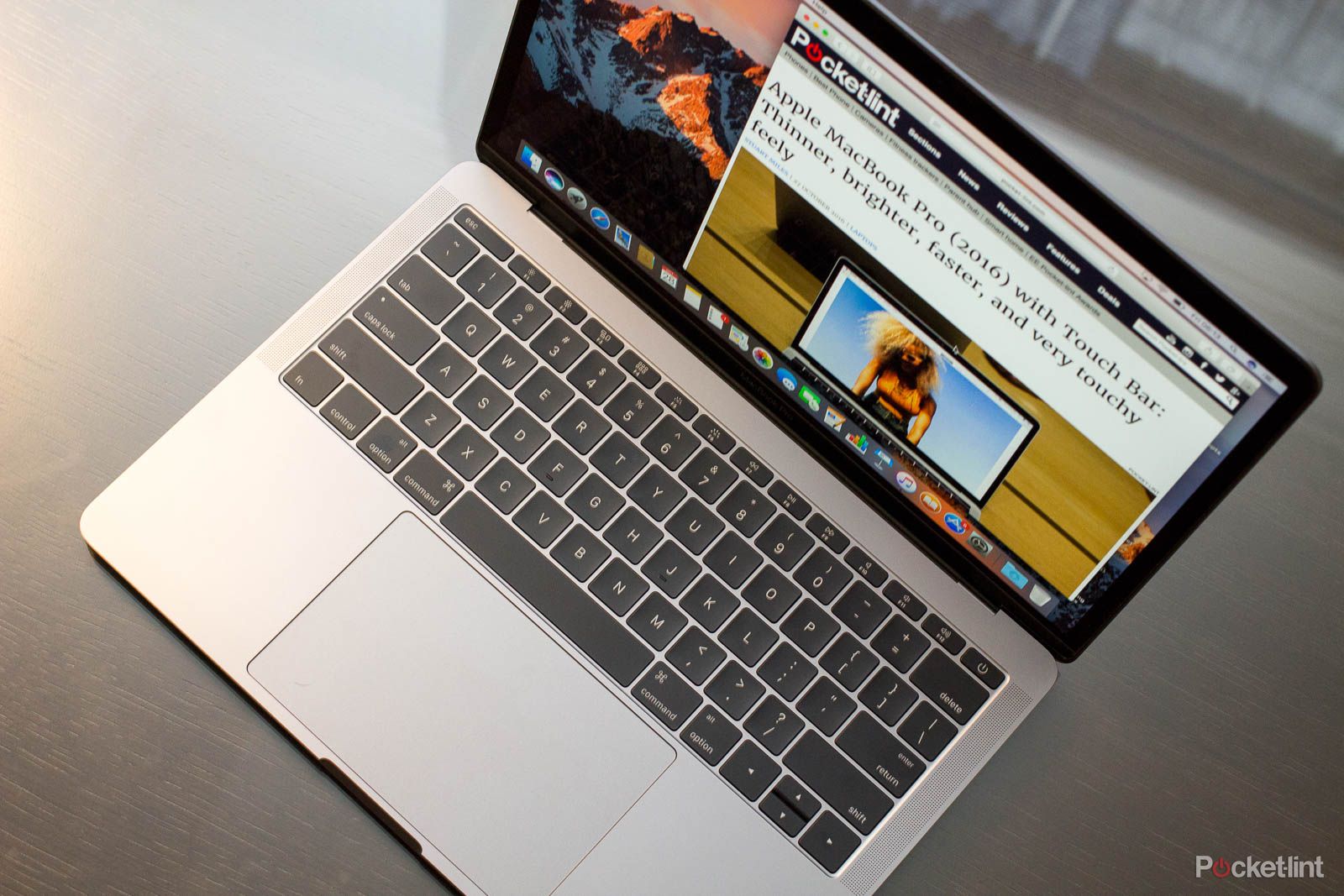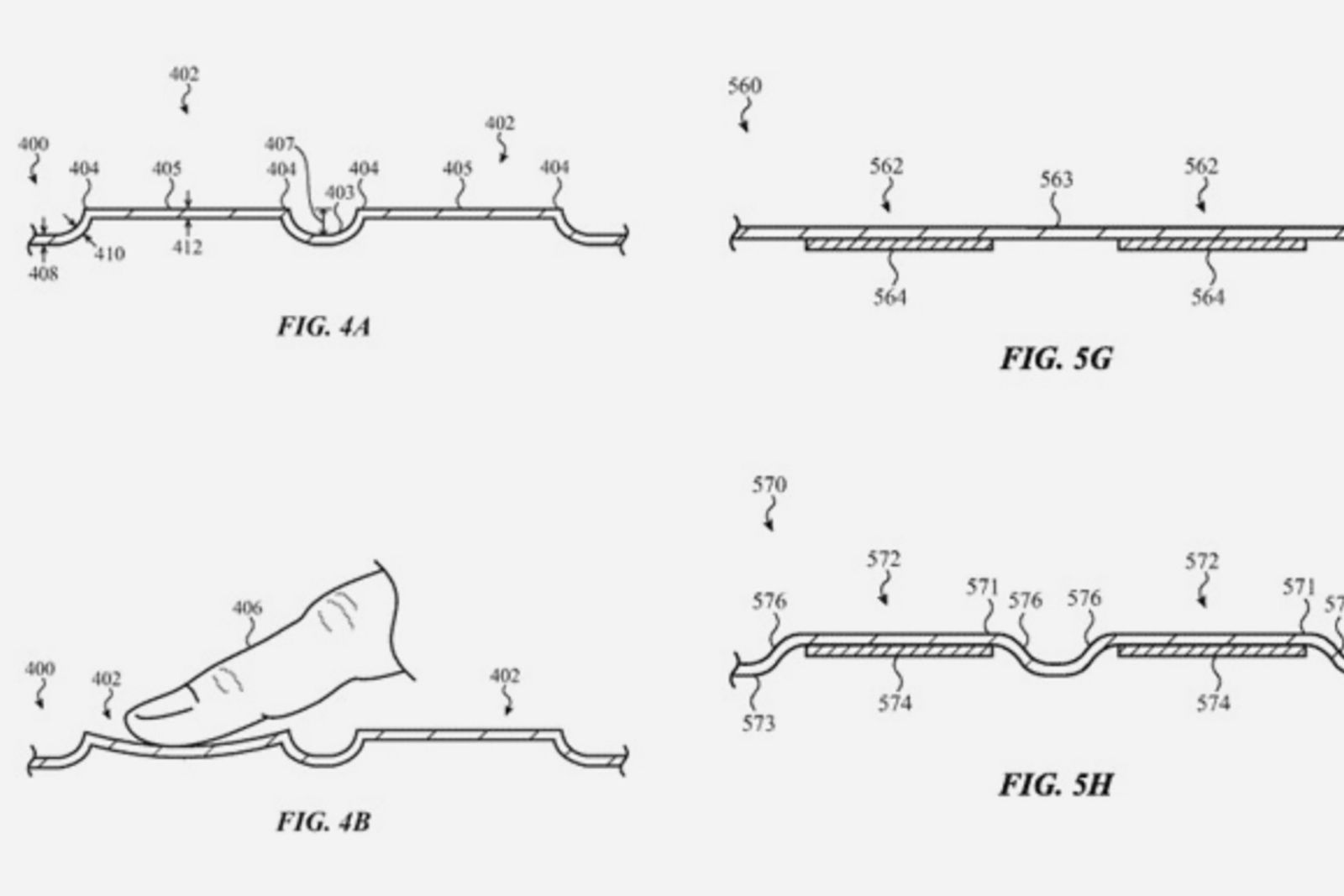Apple is considering ditching traditional keyboards for glass ones.
When it comes to MacBook laptops, Apple has faced sharp criticism in recent years. Some people think their designs are dated, as the overall look of the machines haven't changed in years, and others are annoyed by the keyboards, which can easily gum up with dust or debris. Despite what it may seem like now, Apple has not lost all its capacity for innovation. The company is actively imagining new form factors for the Mac.
Future keyboards in MacBook laptops could feature a glass panel in place of keys -- complete with raised sections to mimic the feeling of chicklet-style keys. As spotted by Apple Insider, a patent application was recently published by the USPTO. Named "Computer with keyboard", the patent describes a keyboard without moving components. It's a full glass sheet without movable keys, but rather raised sections for keys.
As the user presses down on one of the raised key sections, the keyboard will force an input, and the user will sense both a tactile and haptic feedback, so they'll know exactly where their fingers are placed. Currently, virtual keyboards on touchscreens are difficult to use, as we are used to feeling around for keys and often rely on how they depress and raise to speedily type.
Without those sensations, we can get lost.
Apple's glass panel could be a solution, and it'd simultaneously be impervious to dust and debris. The patent indicates the keys are unmoving and use curved glass as well as haptic motors. Alternatively, they could use thinner, flexible glass that can depress to simulate a traditional key press. Either way, the keyboard beneath the glass would be all software, so you'd be able to change the layout.
We'd love to see Apple implement this technology. It doesn't need to replace physical keyboards in all MacBook models, but it'd be great to get a special one with this sort of innovative thinking applied - if only to test it before a wider rollout. Apple has done this in the past, after all.
When it launched the iPhone X, it added Face ID to the anniversary-edition device, but the other standard iPhone models still had Touch ID.


